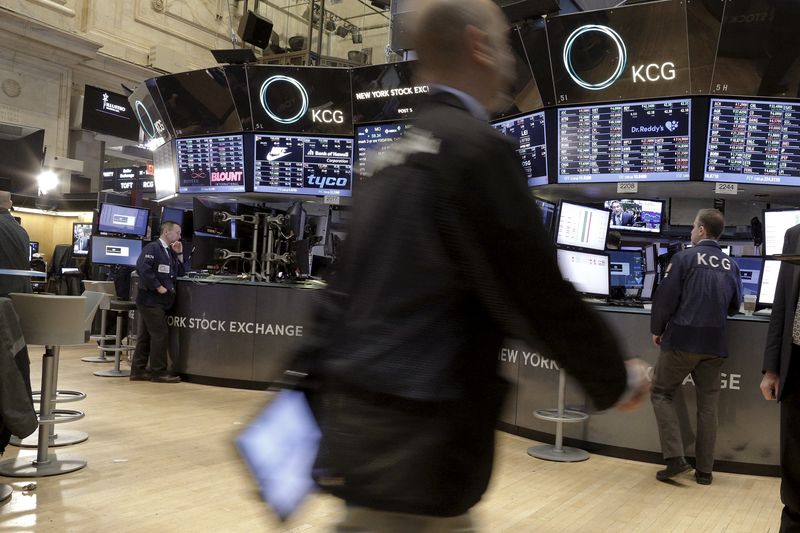By Geoffrey Smith
Investing.com -- China imposed its new security law on Hong Kong, prompting immediate U.S. retaliation. The July 4th weekend is looking more and more under threat of tighter lockdown measures after counties in California and Florida closed their beaches, and Kansas and Oregon ordered citizens to wear masks in indoor public spaces. Stocks are set to open mixed at the end of their best quarter in over a decade, while Jerome Powell is set to warn that the recovery is "extraordinarily uncertain". And Royal Dutch Shell (LON:RDSa) warned of up to $22 billion in asset impairments due to the lasting hit to oil prices from the pandemic. Here's what you need to know in financial markets on Tuesday, June 30th.
1 China imposes Hong Kong law; U.S. retaliates
China’s top legislative body passed a new national security law tightening Beijing’s control over the formerly autonomous city.
The U.S. government responded by withdrawing the special status on trade that it had accorded to the city.
The news came on a day when the Chinese economy gave further proof of its recovery, with the official manufacturing Purchasing Managers Index rising more than forecast to 50.9, and the non-manufacturing index also rising to 54.4 from 53.6 a month ago. That was enough to push the price of copper above $2.70 a pound for the first time since January.
2. Powell, Mnuchin to testify as virus fears rise ahead of July 4 weekend
Federal Reserve Chairman Jerome Powell and Treasury Secretary Steven Mnuchin will address the House Financial Services Committee later, with Powell set to warn that an economic rebound cannot be taken for granted.
“The path forward for the economy is extraordinarily uncertain and will depend in large part on our success in containing the virus,” according to Powell’s prepared remarks, which were published by the Fed on Monday. “A full recovery is unlikely until people are confident that it is safe to re-engage in a broad range of activities.”
Powell’s warning comes as numerous states tighten their measures to contain the virus, threatening to complicate the coming July 4th celebrations. Counties in California and Florida have closed their beaches, while the states of Kansas and Oregon are imposing a requirement to wear masks in indoor public spaces – as is the city of Jacksonville in Florida, where the Republican Party convention is due to take place.
3 Stocks set to open mixed; Boeing's gains trimmed
U.S. stocks are set to open mixed on the last day of what is set to be their best quarter in over a decade.
By 6:30 AM ET (1030 GMT), the Dow futures contract was down 54 points, or 0.2%, while the S&P 500 futures contract was down 0.1% and the Nasdaq 100 futures contract was flat. The Dow underperformed partly because Boeing (NYSE:BA) stock was giving up gains in premarket on news of a big 737 MAX order cancellation from Norwegian Air Shuttle (OL:NWC).
The Nasdaq is, by contrast, being supported by strong earnings reported after the bell on Thursday by chipmaker Micron Technology (NASDAQ:MU) and computer hardware maker Xilinx (NASDAQ:XLNX).
U.S. data due include the Chicago PMI at 9:45 AM ET and the Conference Board’s consumer sentiment index for June at 10 AM.
4. Pound weakens at Johnson prepares to spend, spend, spend
The U.K.’s plans to re-open most of its economy this weekend took a knock as the government was forced to lock down the city of Leicester (pop. 330,000) in response to rising cases of the virus.
The U.K.’s stuttering exit from its state of emergency was also illustrated by the refusal of Greece on Monday to accept direct flights from the country for another two weeks.
Prime Minister Boris Johnson is set to give a keynote speech today on navigating a way out of the crisis by massively expanding spending on infrastructure and education.
The pound fell to a one-month low against the dollar and remained close to a three-month low against the euro.
5. Shell sees possible $22 billion hit; API Inventories due
Finding a way out of the corona crisis gets no easier for the oil and gas industry. After the collapse of shale pioneer Chesapeake Energy (NYSE:CHK) at the weekend, Anglo-Dutch major Royal Dutch Shell said it will write down its assets by between $15 and $22 billion in the second quarter, to reflect its expectations of a lasting hit to oil prices.
The company still stuck to its long-term forecast of $60 a barrel and $3 per million Btu for natural gas, but said it will take until 2023 for prices to return to this level. For the current year, it expects an average Brent price of $35 a barrel, rising to $40 next year.
The U.S. oil market will receive its latest update on U.S. crude supplies from the American Petroleum Institute at 4:30 PM ET.
